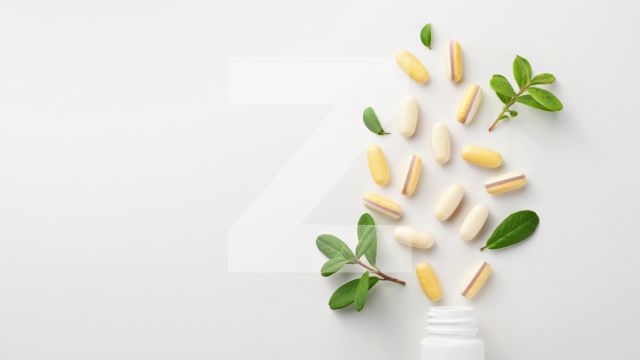It is a well-known fact that the ages of 13 to 18 are very important for a person’s development. To sustain the fast pace that this system has adopted, diet is therefore appropriate. Nonetheless, vitamin supplements remain as one of the best ways to ensure that teenagers have all the nutrients that they require.
In this article, we will take you through the various vitamins that teenagers should take and the overall impact which they tend to have in the healthy teenage development process.
Best Vitamins for Teens
Vitamins are known to be organic compounds which directly originate from plants or animals. Minerals are non-carbon compounds and they are either assimilated from the soil by plant or ingested by animal. Also, your body requires more amounts of minerals like calcium for the body to be healthy.
What vitamins and minerals do in our body?
Some of the roles of vitamins and minerals include enhancing the immune response, proper growth and development in children, and acting in the capacity of the helpers for cell and organ function. For instance, there are certain statements that have become a proverb, as with the saying ‘Carrots are good for the eyes.’ It’s true! Carrots contain carotenoids that are essential for the body to be transformed to vitamin A that is crucial for the eyes.
Vitamin K also plays an active role in the clotting of blood as seen with cuts and abrasions; they do not bleed for long. The green, leafy vegetables, broccoli, and soybeans are other good sources of vitamin K. As in strengthening your bones you have to take foods like milk, yogurt, and green leaved vegetables which are usually rich in calcium.

Essential Vitamins for Teenagers
Vitamin D:
Among the essential nutrients required by teen agers is vitamin D as it helps in the formulation of bones and teeth through the utilization of calcium. This is especially the case given the exceptional growth stages that form the adolescent age or puberty. Teenagers can get vitamin D through diet or supplements which can come in the form of foods that has been enriched or directly from sunlight. The body should have optimum levels of this vitamin to help avoid such diseases as rickets in childhood and osteoporosis in the later stages of life.
Read Also: How screen time shapes children’s brain
Vitamin A:
Vitamin A helps to support the overall health of vision and protect the body against diseases and infections. It is also involved in the maintenance of skin health, something which may be crucial when in their teenage years and they are prone to acne. Some examples of foods containing vitamin A include carrots, sweet potatoes and other dark green vegetables. They are a rich source of this nutrient and including them in the daily diet will ensure that one gets his/her daily requirement of this nutrient.
Vitamin C:
Vitamin C is known for combating free radicals and boosting immunity. It helps tissues develop and mend, making it useful for teens in sports or other physically demanding activities. Vitamin C-rich foods like citrus fruits, strawberries, and bell peppers help the body stay healthy and avoid common ailments.
Vitamin E:
Vitamin E is a powerful antioxidant which’s basic function is to prevent from the oxidation of molecules in cells. In teenagers, this vitamin is quite helpful to improve skin condition and fight effects of the acne and for having a good skin. Some other foods with vitamin E are nuts, seeds and green leafy vegetables; these foods should be taken into diet by a teen as this will improve his or her skin and health.
B Vitamins:
The water-soluble vitamins B1, B2, B3, B6, B12, and folic acid help energy metabolism and brain function. These vitamins boost mood, support a healthy neurological system, and improve brain processes needed for learning. Whole grains, meats, dairy, legumes, etc. contain B vitamin. Having a number of these foods in teen’s diet system will go a long way in determining their health wellbeing.

How to guarantee Teens get enough Vitamins?
Balanced Diet
Good nutrition is best defined as the state of having a healthy balanced diet, and it acts as the basis from which other micro-nutrient deficiencies can be diagnosed.
Food should in fact be a teen’s major source of vitamins and the best way to achieve this is through a balanced diet. Be a role model by giving several portions of fruits, vegetables, whole grains, proteins and dairy products to consume.
Avoiding Junk Food
Fast food products are energizing in calorie content but are lacking in desirable nutrient value. Teens should avoid sugary foods like snacks, sodas, and fast foods because it is unhealthier to eat more of them than necessary. While it is possible to incorporate high calorie foods, make sure they are healthy ones such as fruits and nuts and yogurt that the body needs.
Supplementation: When and How
Even though kids are told to eat a balanced diet, there are times when they won’t get all the vitamins they need. Supplements are a good thing to have in this case. People who want to start taking vitamins should talk to a doctor first to find out if they need them and if it is safe for them to do so. People often don’t get enough calcium and iron, so supplements can be given based on what the body needs.
Supplements aren’t all bad, but should I take one?
Vitamin or mineral supplements are popular today and lots of people ask whether they should use them or not. If your personnel food intake consists of a number of groups of foods such as whole grain products, fresh fruits and fresh vegetables, dairy products, nuts and seeds, eggs and meats you probably are able to acquire all the necessary vitamins and minerals for your body.
In particular, do not use vitamins and minerals supplements without consulting with your healthcare provider. Desire is normal for everyone; however, one has to learn when to put the brakes on since moderation is the key to everything even if something is good for you. There are some vitamins and minerals that you can get far too much of and it’s not good for your health.

Tips When Purchasing a Vitamin for Teens
In general, excluding the above-discussed best vitamins for teenagers, it is very important to consider certain factors as the basis for standard quality and efficacy. These are:
1. Nutrient Content
Teenagers require higher nutrient intake because of the growth demand of the body as compared to infants.
The job of the multivitamins is to provide a teenager’s body with those parts of vitamins and important minerals as vitamins A, C, D, E, K and B vitamin groups, as well as calcium, iron, magnesium and zinc.
The doses of each nutrient should not be too high or too low for growing teens.
2. High quality and pure ingredients
It is crucial to use quality chemicals in formulating a multivitamin by the manufacturer to guarantee effectiveness and safety. These supplements must be made from high-quality, pure ingredients that have been mixed correctly and have not been tampered with in any way.
3. Absorption and Bioavailability
Again even if the multivitamin has all the ingredients in it that is supposed to include the body has to be able to absorb them fully.
As an example, it had to have a high adsorption capacity and solubility to show that the nutrients were getting to the right places.
4. The consumer perception and credibility of the products
There is also the matter of the multivitamin brands, which are well-known or have a good name in the market and may therefore affect the price in the market. It’s best to pick a supplement brand that is well-known in the market or that has made good multivitamins in the past.
Also, read reviews and look at customer experiences to make sure that the multivitamins work as they should for normal people.
Six Best Multivitamins for Teens
These multivitamins are particularly designed for teens to ensure that these are safe, reliable and contain adequate levels of vitamins and minerals.
1. DMoose All in One Multivitamin – Gluten free Best Multivitamin
2.Rainbow Light Energy Multivitamin – for Teenage Acne
3.Raw One from Garden of Life code: Best Organic Multivitamin
4. Smarty pants Teen Multi: for Active Teens
5. Nature’s Plus Source of Life Power Teen.
6. Solgar U-Cubes Teen multivitamin: Best gummy Multivitamin
Conclusion
Organic vitamins are extremely important for the physical growth and improvement of teens, and therefore it is important to consume the best vitamins. Pay special attention to the quality of food the kids are eating: a healthy diet can help them to grow healthy both physically and mentally during these important years.
Vitamins, minerals, and other nutrients might not suffice if the diets are inadequate and supplements can fill the gap but should be taken in moderation. Therefore, if we ensure that our teenagers take proper nutrition, they are likely to grow strong and set a basis for a healthy future.


